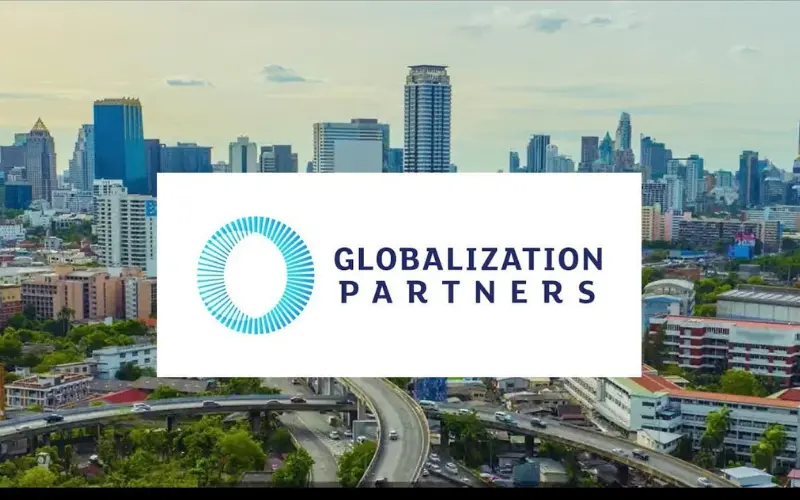Globalization Partners 2024 Work Force Trends

Table of Contents
In today’s interconnected world, businesses are increasingly looking beyond their national borders to expand their reach and tap into new markets. This global expansion comes with its own set of challenges, particularly when it comes to navigating the complexities of international employment laws, compliance requirements, and cultural differences. Enter globalization partners—a crucial component in the toolkit of any company aiming to scale globally efficiently and compliantly.
What are Globalization Partners?
Globalization partners, often referred to as global employment or international PEO (Professional Employer Organization) providers, are organizations that specialize in helping companies expand their operations into new countries without the need to establish a legal entity or infrastructure in each location. They act as the legal employer of record for the company’s overseas employees, handling payroll, benefits, tax compliance, and other HR functions on behalf of the client.
How Do They Facilitate Global Expansion?
1. Navigating Legal and Regulatory Complexities:
Globalization partners have a deep understanding of local labor laws, tax regulations, and compliance requirements in multiple countries. This expertise is invaluable for companies that may not have the resources or knowledge to ensure they are operating within the legal framework of a foreign jurisdiction.
2. Mitigating Risks:
By serving as the employer of record, globalization partners shoulder a significant portion of the risk associated with international expansion. This includes compliance with employment laws, mitigating legal liabilities, and managing potential cultural and language barriers.
3. Speed to Market:
Setting up a legal entity in a new country can be a time-consuming process involving bureaucratic hurdles and legal paperwork. Globalization partners streamline this process, allowing companies to enter new markets quickly and focus on their core business activities rather than administrative tasks.
4. Flexibility and Scalability:
Whether a company needs to hire a single employee or build an entire team overseas, globalization partners offer flexibility in scaling operations without the long-term commitments and costs associated with establishing a permanent presence in a new country.
5. Expertise in Global HR Management:
Managing HR functions across different countries requires specialized knowledge and resources. Globalization partners bring expertise in global HR management, ensuring that employee payroll, benefits administration, and HR policies are aligned with local practices and regulations.
Choosing the Right Globalization Partner
Selecting the right globalization partner is crucial for the success of international expansion efforts. Considerations include:
- Global Presence and Local Expertise: A partner with a strong presence in your target markets and a deep understanding of local regulations.
- Track Record: Look for providers with a proven track record of successfully supporting companies in your industry and size.
- Scalability: Ensure the partner can support your growth trajectory and scale operations as needed.
- Compliance and Risk Management: Verify their approach to compliance, risk mitigation, and handling of legal responsibilities.

key features of Globalization Partners
Globalization partners provide essential services that facilitate international expansion for businesses without the need to establish a legal entity in each target country. Here are the key features and benefits they typically offer:
1. Employer of Record (EOR) Services:
Globalization partners act as the legal Employer of Record (EOR) for their clients’ overseas employees. This means they take on the responsibility of complying with local employment laws, managing payroll, taxes, benefits administration, and other HR-related tasks on behalf of the client.
2. Compliance and Risk Management:
They ensure compliance with local labor laws, regulations, and tax requirements in each country where their clients operate. This includes staying updated on changes in legislation and mitigating compliance risks for the client.
3. Speed to Market:
By leveraging existing infrastructure and expertise, globalization partners enable companies to enter new markets quickly. They bypass the lengthy process of establishing a legal entity, allowing businesses to focus on their core operations and accelerate their time to market.
4. Flexibility and Scalability:
Globalization partners offer flexibility in scaling operations globally. Whether a company needs to hire one employee or a whole team, they can accommodate varying levels of workforce expansion without the administrative burden of setting up local entities.
5. Local Expertise and Global Presence:
They possess deep knowledge of local business practices, employment laws, cultural nuances, and market conditions in multiple countries. This expertise helps clients navigate the complexities of operating in foreign jurisdictions effectively.
6. HR and Administrative Support:
Beyond legal compliance, globalization partners provide comprehensive HR support. This includes managing employee benefits, handling local payroll processing, ensuring statutory compliance with employment regulations, and providing guidance on HR policies tailored to local contexts.
7. Risk Mitigation and Legal Protection:
By serving as the EOR, globalization partners assume legal responsibility for employment-related liabilities in the foreign market. This shields the client from potential legal and financial risks associated with international expansion.
8. Cost Efficiency:
Engaging a globalization partner is often more cost-effective than establishing and maintaining a foreign subsidiary. Companies avoid upfront capital expenditures, ongoing operational costs, and administrative overhead related to maintaining legal entities abroad.
9. Cultural Sensitivity and Integration:
They understand the importance of cultural sensitivity and integration when managing a global workforce. This includes facilitating effective communication across different time zones, respecting local customs, and fostering a cohesive corporate culture across borders.
10. Strategic Guidance and Support:
Beyond operational tasks, globalization partners may offer strategic guidance on global expansion strategies, market entry approaches, and navigating local business environments. They serve as trusted advisors to help clients achieve their international growth objectives.
In essence, globalization partners play a pivotal role in enabling businesses to expand internationally with agility, compliance, and reduced risk. Their specialized services allow companies to capitalize on global opportunities while navigating the complexities of operating in diverse regulatory environments. As globalization continues to reshape the business landscape, these partnerships are increasingly essential for companies seeking to thrive in the global marketplace.

Conclusion
In conclusion, globalization partners represent a pivotal resource for companies aspiring to expand their operations into international markets efficiently and compliantly. As businesses increasingly look beyond their domestic borders for growth opportunities, these partners offer indispensable expertise and infrastructure to navigate the complexities of global expansion.
By assuming the role of the legal employer of record in foreign jurisdictions, globalization partners mitigate significant operational and compliance risks for their clients. This arrangement allows companies to bypass the time-consuming process of establishing legal entities abroad, thereby accelerating their entry into new markets. Moreover, the ability to scale operations seamlessly, whether hiring a few employees or establishing a robust team, provides unparalleled flexibility that traditional expansion methods often lack.
The comprehensive services offered by globalization partners encompass payroll management, benefits administration, tax compliance, and HR support tailored to local regulations and cultural nuances. This ensures that companies remain compliant with diverse international laws while fostering a cohesive global workforce environment.
Furthermore, partnering with a globalization provider can yield cost efficiencies compared to establishing and maintaining foreign subsidiaries. This cost-effectiveness, coupled with the strategic guidance and operational support these partners provide, enables businesses to allocate resources more effectively toward core business activities and growth initiatives.
Nevertheless, while globalization partners offer numerous benefits, businesses must carefully evaluate potential providers to ensure alignment with their specific needs and growth objectives. Factors such as global presence, industry expertise, track record, compliance capabilities, and scalability should be carefully considered during the selection process.
In essence, globalization partners play an integral role in reshaping the landscape of global business expansion. By leveraging their specialized services and extensive networks, companies can navigate the complexities of international markets with confidence, seize growth opportunities, and achieve sustainable success in the global economy of the 21st century. As globalization continues to evolve, these partnerships will remain instrumental in supporting businesses in their pursuit of global growth and market leadership.
FAQS
1. What is a globalization partner?
A globalization partner, also known as a global employment or international PEO (Professional Employer Organization) provider, is a company that helps businesses expand internationally by acting as the legal employer of record for their overseas employees. They manage payroll, benefits, compliance, and other HR functions in multiple countries on behalf of their clients.
2. Why should my company use a globalization partner?
Using a globalization partner allows your company to expand into new markets quickly and compliantly without the need to set up legal entities in each country. They handle the complexities of local employment laws, payroll processing, and HR administration, freeing your resources to focus on core business activities.
3. What services do globalization partners typically offer?
Globalization partners offer a range of services including employer of record services, payroll processing, benefits administration, tax compliance, HR support, legal compliance, and risk management in multiple countries.
4. How does a globalization partner ensure compliance with local laws?
Globalization partners have deep expertise in local employment laws, regulations, and tax requirements across various countries. They stay updated on changes in legislation, ensuring that your company remains compliant with local regulations regarding employment, payroll, taxes, and benefits.
5. Can a globalization partner help with hiring and managing employees in different countries?
Yes, globalization partners facilitate hiring and managing employees in different countries by acting as the employer of record. They handle recruitment support, onboarding processes, payroll management, and termination procedures in compliance with local laws.
6. What are the benefits of using a globalization partner?
Benefits include accelerated global expansion, reduced administrative burdens, compliance with local regulations, risk mitigation, cost savings compared to establishing legal entities, access to local expertise, and scalability in hiring and managing global teams.
7. How does the pricing structure of globalization partners work?
Pricing structures vary among globalization partners and typically depend on factors such as the number of employees, countries of operation, specific services required, and the complexity of local compliance. Costs may include setup fees, monthly management fees per employee, and additional charges for specific services.
8. Is there a minimum or maximum number of employees required to use a globalization partner?
Globalization partners cater to companies of various sizes—from small businesses to large enterprises. Whether you need to hire one employee or hundreds, they can provide scalable solutions to meet your international workforce needs.
9. How do I choose the right globalization partner for my company?
When selecting a globalization partner, consider factors such as their global presence, expertise in your target markets, track record with companies similar to yours, compliance capabilities, customer support quality, cost structure, and ability to scale with your business growth.
10. What are some potential challenges of working with a globalization partner?
Challenges may include cultural differences, communication across different time zones, coordinating with a remote team, ensuring alignment of HR policies with corporate standards, and managing expectations regarding service delivery and compliance in diverse international locations.



